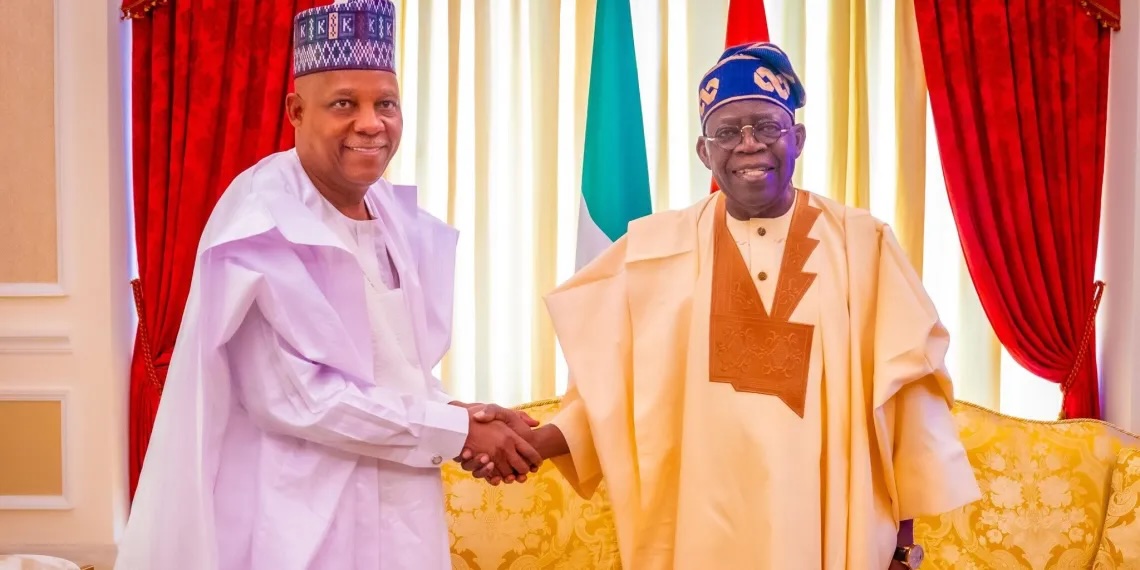
Jurisprudential thought establishes the corresponding principles of rights and responsibilities. Three logical inferences stem that thesis. One, no right is absolute. Two, the fundamental right to freedom of expression in enlightened democratic societies, of which speech is a necessary part, is circumscribed by the responsibility to speak or write truthfully within established legal limits.
Three, the right to freedom of expression, establishes an enduring tension, within policy contexts for instance, of the legitimate public interest exercisable, and/or exercised by persons, including the media, press, social media influencers, gratuitous attention seekers inter alia; in responsibly uttering and/or publishing factually correct information, versus the national interest of withholding materially sensitive information, which could jeopardise the security of the state.
Notwithstanding freedom of expression, breaching the responsibility to say or publish truthfully, and lawfully, may invoke criminal sanctions and tortious liability for defamation across many jurisdictions.
For brevity, the terms journalists, news media organisations, mass media organisations, newspapers, and the press are collectively referred to as the fourth estate, in this piece. Section 22 of the 1999 Nigerian Constitution (as amended) (the “Constitution”) establishes that: “the press, radio, television and other agencies of the mass media shall at all times be free to uphold the fundamental objectives contained in this Chapter and uphold the responsibility and accountability of the Government to the people.”
Section 39 (1) of the Constitution stipulates that “every person shall be entitled to freedom of expression, including freedom to hold opinions and to receive and impart ideas without interference.”
Prima facie, these constitutional provisions confer enormous powers on the fourth estate relative to their “responsibility”, as distinguished, from their “right” to hold government to account pursuant to section 22 supra. However, upon forensic scrutiny, there is no constitutionally explicit right granted to the press to hold the government to account. Thus, the constitution creates a nuanced legal distinction between the “right” to hold government accountable and the “responsibility” to do so.
That proposition is further reinforced in that section 22 falls within Chapter II of the Constitution, Fundamental Objectives and Directive Principles of State Policy; which is reasoned non-justiciable pursuant to section 6 (6)(c) therein. The latter explicitly establishes that judicial powers so contained shall not extend to “any issue or question as to whether any act or omission by any authority or person as to whether any law or any judicial decision is in conformity with the Fundamental Objectives…”
Plainly therefore, the fourth estate cannot invoke the purportedly constitutional conferred powers in section 22, to enforce a responsibility to hold government accountable.
Nonetheless, section 39 (1), affords a robust counter-argument to the strictures of section 6 (6)(c) and section 22, supra, and confers the right on the fourth estate to freedom of expression. Because, the ordinary construction of “every person” in section 39 (1) includes natural persons, and juridical (non-natural) persons.
The inference therefore is that columnist A, a natural person, and media organisation B, can publish, in exercise of constitutionally guaranteed freedom of expression, what is factually correct and is deemed, objectively, and reasonably, to be in the legitimate public interest. However, as previously established, no right is limitless. Therefore, section 39 (2), (3) (a), (b), of the Constitution provide exceptions to the general principle established in 39 (1) supra.
For instance, section 39 (3) (a) and (b) makes it lawful to withhold the disclosure of information: received in confidence; for maintaining the authority and independence of courts; regulating telephony, wireless broadcasting (which arguably includes social media); television or the exhibition of cinematograph films. Furthermore, the lattermost provision imposes restrictions upon persons holding office under the Federal or State Government, the armed forces, police, other government security agencies or agencies established by law.
Other seminal statutes include Nigeria’s Official Secrets Act (2004), which criminalises the unauthorised access, transmission, reproduction or retention of classified matters prejudicial to the security of the country; section 189 of the Evidence Act (2011), which imposes statutory restrictions on what public officers can disclose regarding the sources of information pertaining to the commission of offences; section 191 of the Evidence Act supra, which affords public officers a statutory defence for non-disclosure of communications when, in the subjective evaluation of those persons, disclosure would harm the public interest.
Do persons have a right to know how they are governed? How, should their governments be held accountable? Should a government, or its agency, be judge-and-jury, in cases of alleged broadcasting code breaches? Between the rivalling objectives of the public interest in the freedom of expression, versus safeguarding sensitive-information, which should prevail? Exponential advances in Artificial Intelligence and social media establish enormous advantages and disadvantages globally. Is the law current? Are defamation laws robustly protecting innocent persons?
The famous jurist, Lord Denning, in The Due Process of Law, opined that “it is in the interest of the public in matters of national concern and the freedom of the press to make comment on such matters. The one interest must be balanced against the other.” This affirmatively addresses the poser as to whether persons are entitled to know how they are governed.
Three logical deductions emerge. First, transparency in government is non-negotiable. Second, the fourth estate is perfectly entitled to comment on such matters insofar as its foundational roles pertain to information and education. Third, what constitutes “comment” on national concern is one underpinned by objectivity. That is, whether it meets the tests of truth, consistent with the editorial policy of the relevant media organisation and is justified by the public interest.
The statutory intermediation afforded by the Freedom of Information Act (FOIA) 2011 is therefore pivotal in several respects. Because, it aims to make public records and information more freely accessible; provide for public access to public records and information; protect public records and information to the extent consistent with the public interest and the protection of personal privacy; protect serving public officers from adverse consequences of disclosing certain kinds of official information without authorisation and establish procedures for the achievement of those purposes and; for related matters. Thus, its overarching philosophy is to unshackle the statutory strictures established in the Evidence Act, Official Secrets Act and other statutes by ushering a presumption of disclosure of public records and information, rather than the converse.
Even so, the complexities contained in section 39 (3) (a) and (b) of the Constitution, supra, remain and the latter is the supreme law. To that extent, the FOIA’s presumption of disclosure is super, relative to press freedom, however, the highlighted legal constraints stand.
Besides, pursuant to section 11 (1) of the FOIA, a public institution may deny an application for any information the disclosure of which may be injurious to the conduct of Nigeria’s international affairs and the defence.
That said, some semblance of proportionality is evident in subsection (2), in that an application for information shall not be denied where the public interest in disclosing the information outweighs whatever injury that disclosure would cause.
Accordingly, the fourth estate may rely on the second limb of the statutory provision contained section 11 (2) in seeking to access/publish public records and information in the legitimate public interest.
Regarding AI and social media, the Cybercrimes (Prohibition, Prevention Etc) Act 2015 is vital. It aims to establish an effective and unified legal, regulatory and institutional framework for the prohibition, prevention, detection, prosecution and punishment of cybercrimes in Nigeria; ensure the protection of critical national information infrastructure; and promote cyber security and the protection of computer systems and networks, electronic communications, data and computer programs, intellectual property and privacy rights.
Section 38 (1) therein mandates the retention of cyber electronic traffic data (including mobile telephony and computer records) and subscriber information by service providers for two years. Plus, those records can be accessed by the relevant authority or any law enforcement agency for legitimate purposes. The question as to the legitimacy of the purpose is one to be determined by the Act itself, other legislation or competent courts. It is open to the fourth estate to legally-test the proportionality and public interest threshold of these provisions relative to the privacy rights of innocent law-abiding citizens.
SERAP; CJID v President Buhari; Mr Lai Mohammed FHC/L/CS/1486/2022; is authority for the proposition that neither the government, nor its agency, the Nigerian Broadcasting Commission, can be judge-and-jury in regulating journalistic propriety and regulatory compliance. Establishing the claimant’s locus standi pursuant to the Fundamental Rights (Enforcement Procedure) Rules 2009, the Federal High Court, in November 2024, ordered the Commission to halt the imposition of fines, sanctions and any form of intimidation and harassment of the fourth estate!
Aggregating, the fourth estate must at all times be above-board, as the de facto conscience of the nation applying the maxim: “physician heal thyself.” It must ensure that its responsibilities for informing and educating society, holding government accountable and safeguarding progressive democracy are untainted.
Because, infractions will be costly in pecuniary losses, reputational harm and damages for the tort of defamation. In Sun Publishing Ltd v D.S. (Nig) Ltd 9NWLR (PT 1678) 510 CA, the Court of Appeal decided that the appellants breached their responsibility to properly investigate the accuracy of their news item before publishing what was patently libelous and reckless against the respondent.
The National Assembly should seriously consider granting the fourth estate a statutory defence to non-disclosure of sources similar to what currently obtains for public officers regarding section 191, Evidence Act supra. Plus, the Committee to Protect Journalists reports that in the eight months to August 2024, 56 journalists were attacked across Nigeria – which is clearly unacceptable and undermines Nigeria’s aspirations at becoming a progressive democracy.
Ojumu is the Principal Partner at Balliol Myers LP, a firm of legal practitioners and strategy consultants in Lagos, Nigeria, and the author of The Dynamic Intersections of Economics, Foreign Relations, Jurisprudence and National Development (2023).






